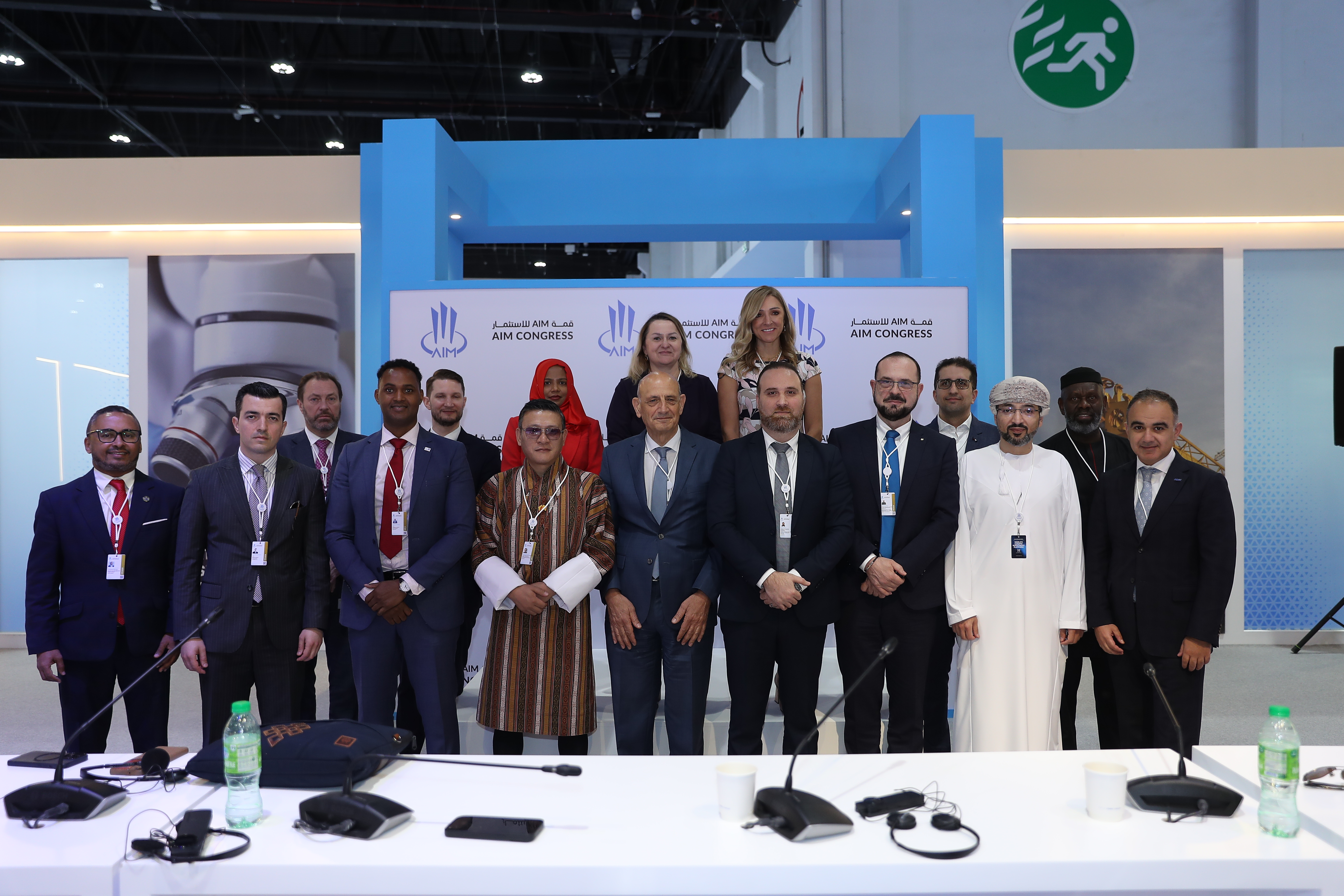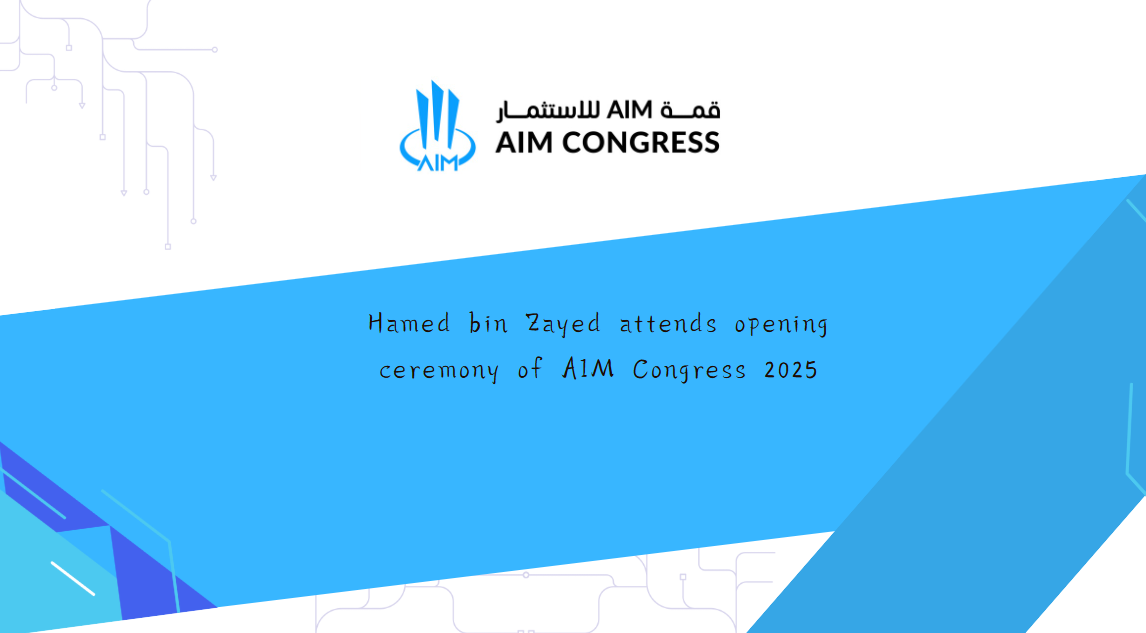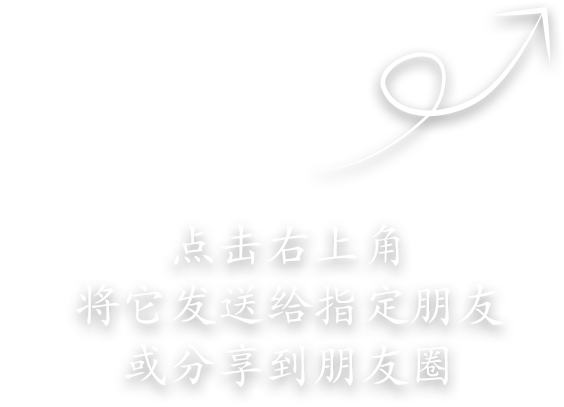Global Stock Exchange Leaders Convene at AIM 2025 to Advance Financial Market Integration, ESG, and Cross-Border Investment
Abu Dhabi, UAE – 8th April 2025: AIM 2025 Global Investment Roundtable hosted a high-level session featuring CEOs and senior officials from leading stock exchanges and financial market authorities across the globe. The discussion focused on navigating regulatory challenges, enhancing financial market integrity, expanding access for emerging markets, and advancing ESG compliance in a rapidly evolving global financial environment.

The roundtable opened with a session on Regulatory Challenges and Opportunities, highlighting key reforms and initiatives:
Mr. Haitham Al Salmi, CEO of the Muscat Stock Exchange, shared the strategic evolution of the exchange, noting the inclusion of private companies for the first time in 36 years. He emphasized Muscat’s efforts to enhance visibility and investor confidence despite challenges in competing with larger GCC markets.
Mr. Jalil Tarif, Secretary General of the Union of Arab Securities Authorities, underscored the regulatory fragmentation across Arab exchanges, which poses hurdles to cross-border investment. He advocated for harmonized frameworks and the development of secondary markets to boost liquidity and investor participation.
In the session on Mitigating Market Volatility and Enhancing ESG Compliance, Mr. Dorji Phuntsho, CEO of the Royal Securities Exchange of Bhutan, highlighted Bhutan’s unique approach that integrates ESG with the national vision of Gross National Happiness. He called for mandated ESG disclosures to promote long-term investment strategies and reduce speculative trading.
On Regulatory Impact and Market Compliance, Ms. Noorbaan Fahmy, COO and Legal Counsel of the Maldives Stock Exchange, emphasized alignment with international standards, particularly those of IOSCO, as essential for market credibility. Meanwhile, Mr. Hayk Yeganyan, CEO of the Armenia Stock Exchange, pointed to challenges faced by listed companies in meeting enhanced transparency and corporate governance standards, especially for smaller firms.
Addressing the Impact of Deregulation, Ms. Ivana Gažić, President of the Management Board of the Zagreb Stock Exchange, noted that while deregulation can improve flexibility and attract foreign capital, it also increases the risk of market volatility and weakens investor protections. Echoing this, Mr. Petr Koblic, CEO of the Prague Stock Exchange, emphasized that deregulation can boost foreign participation but may also lead to reduced transparency and potential abuse in under-regulated segments.
The roundtable then transitioned into the second session on Financial Markets Integrity, emphasizing innovation and cross-border cooperation:
Mr. Hassan Dudde, CEO of the Somali Stock Exchange, advocated for regulatory partnerships and mutual recognition agreements to foster investor confidence and cross-border capital flows.
Mr. Bob Karina, Chairman of the Rwanda Stock Exchange, highlighted the transformative potential of FinTech, noting Rwanda’s push for mobile trading and digital payment integration to enhance market accessibility for underserved communities.
In a focused dialogue on Promoting Cross-Border and Domestic Listings, Mr. Lukas Bonko, CEO of the Bratislava Stock Exchange, outlined the role of tax incentives and EU regulatory alignment in attracting international listings. Mr. Ruslan Khalilov, CEO of the Baku Stock Exchange, emphasized the need to reduce listing barriers and streamline processes for SMEs.
Mr. Ivan Shteriev, CEO of the Macedonian Stock Exchange, provided insights into Stock Exchange Integration in Southeast Europe, noting the importance of harmonized regulations to support efficient cross-border trading and investor diversification, while acknowledging the inherent complexity of regional integration.
The final session focused on Sustainable Finance and ESG Integration, a priority in global markets:
Mr. Fadi Kanso, Deputy Secretary General of the Arab Federation of Capital Markets, presented a comprehensive overview of the obstacles to ESG adoption in the region, citing lack of standards, institutional resistance, and inadequate enforcement frameworks.
Mr. Miguel Monteiro, Chairman and CEO of the Cabo Verde Stock Exchange, stressed the importance of ESG awareness and education, noting that limited understanding among local companies hampers transparent reporting and comparability.
Highlighting a successful case, the Bolsas y Mercados de México (BIVA)has taken proactive steps to promote ESG investments by launching the BIVA Sustainability Indexand conducting nationwide educational initiatives. These efforts serve as a benchmark for other exchanges seeking to attract responsible investors and boost sustainable market participation.
AIM 2025 continues to serve as a vital platform for global financial leaders to exchange insights, shape policy, and foster collaborative solutions in the face of dynamic market conditions.
-Ends-






















































First, please LoginComment After ~